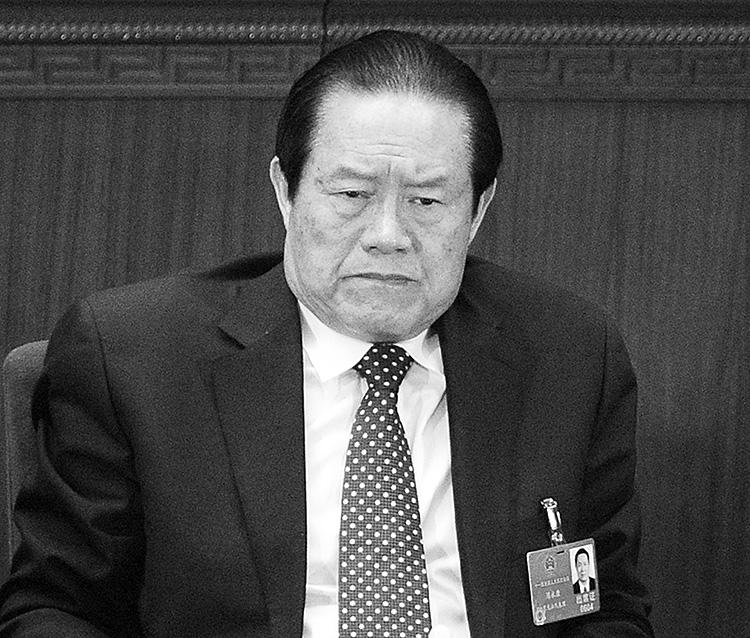
Zhou Yongkang, a member of the Standing Committee of the Political Bureau of CPC attends the opening session of the National People's Congress (NPC) on March 5. A suddenly announced ideological training session is the latest sign that things are changing in Beijing. Liu Jin/AFP/Getty Images
Ideological training sessions in communist China are notoriously boring. But in a Beijing rife with rumors of coups and purges, such a boring training session is causing excited speculation that another top official is being shown the door.




